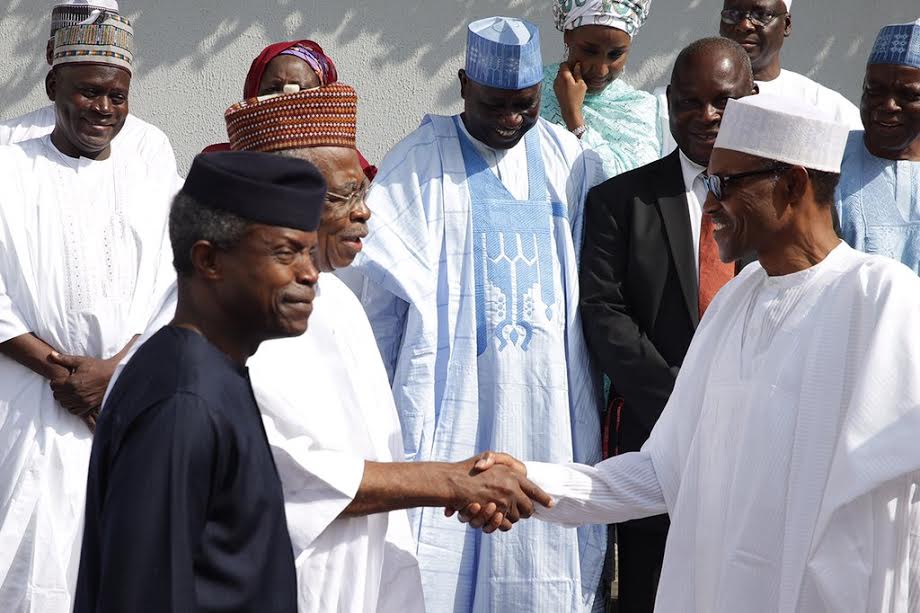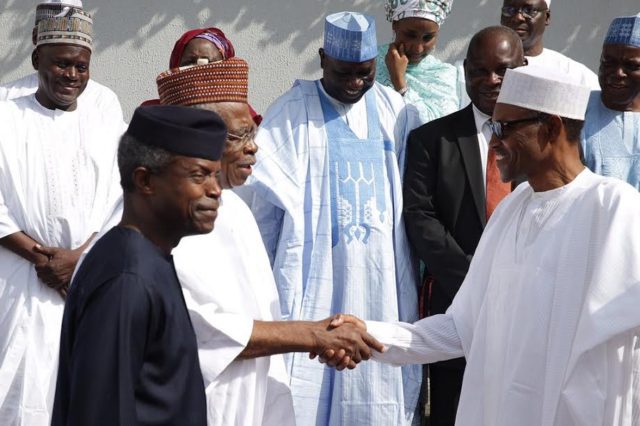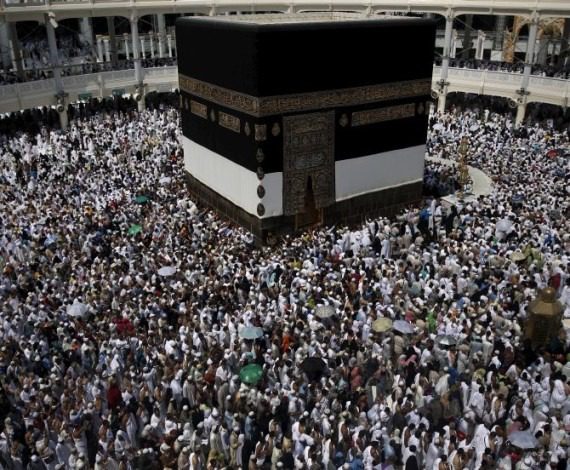National Issues
How We Will Reclaim the North-East -By Tijanni M. Tumsah


The scale of devastation wrought by the terrorist insurgency in the North-East is unprecedented in recent Nigerian history. Since 2009, it has claimed more than 20,000 lives, and accounted for the displacement of 2.4 million people, with 177,000 Nigerian refugees in the neighbouring countries of Cameroon, Chad and Niger. In all, an estimated 14.8 million people have been affected by this highly unfortunate insurgency. The numbers are staggering and the situation is one of the most urgent humanitarian crises in the world at present.
Upon assuming office, President Muhammadu Buhari rightly made ending the insurgency and reconstructing the North-East cardinal priorities of his administration. To this end, he has since inaugurated the Presidential Committee on the North East Initiative (PCNI), under the leadership of Lt. Gen. T.Y. Danjuma (Rtd). The Committee will oversee and coordinate all relief and rehabilitation efforts in the region, and it has developed a comprehensive roadmap for the region’s reconstruction tagged, ‘The Buhari Plan’. This is a 800-page framework that synthesises a vast range of relevant studies and research efforts based on the needs of the people of the North-East by local and international partners, as well as the views of thousands of Nigerians in government and the civil society. It is the guiding document for coordinating all interventions in the region and harmonising the activities of all stakeholders, including civil society organisations, international development partners, philanthropists, state governments, local governments, the private sector, federal ministries, departments and agencies.
The goal of The Buhari Plan is to reverse the backwards socio-economic conditions in the North-East and rebuild the region from the ruins of devastation created by the seven-year insurgency. Given the grave urgency of the situation in the ravaged zone, the plan fittingly makes internally-displaced persons in camps and host communities our first priority. The first six to 12 months of the plan’s operation will witness the deployment of a comprehensive relief programme that will provide immediate humanitarian assistance, social stabilisation, and early recovery support to protect all affected populations within the region. Two million people will be provided with food, non-food items, healthcare, psycho-social care and rehabilitation and unconditional cash transfers to jumpstart their productive lives. To tackle the severe disruption of education, rapidly deployable schools will become operational during this phase. The establishment of secure learning spaces for our children is a major priority. The target areas for this intervention have been determined empirically by a matrix that assesses communities’ extent of exposure and vulnerability, thus ensuring that the most affected and afflicted people that are most in need of help receive urgent attention.
As the president noted while inaugurating the PCNI, the valiant efforts of our military have ensured that the worst of the insurgency is behind us and many displaced persons are willing and ready to return home to pick up their lives and move forward. “However and sadly so, many have nothing to return to. They have lost everything to the insurgency. In addition, social and public services are also absent due to the massive destruction of infrastructure.” To this end, our intermediate objectives, which will build upon the short term interventions, will include screening, cleaning and securing reclaimed communities, destruction of land mines in these areas and the relocation of IDPs and camps, and the full resettlement of all IDPs.
PCNI is also working with various development partners to facilitate the restoration of critical infrastructure – roads, bridges, markets, and police stations – structures essential for the re-establishment of civil order. In addressing the task of rebuilding over 430, 000 housing units, we are not only working with development partners, we have devised a public works scheme that will use local materials and designs and engage available labour in the affected areas in the massive reconstruction efforts that are now underway, thereby providing much needed employment. The people of the North-East will literally be rebuilding their homesteads in a demonstration of their resilience and also their ownership of the plan, their reclamation of agency over their lives, and their participation in the revitalisation of their communities.
Even as we activate peace-building mechanisms and counter-measures against violent extremism in the North-East, these are only part of the multidimensional toolkit for the region’s reconstruction. As military hostilities wind down, the challenge will increasingly become that of winning the peace. We recognise that this is a question of guaranteeing long term economic growth and ensuring that people of working age in the region are engaged in productive activity.
Our long term outlook is shaped by two considerations. First, even before the advent of the insurgency, the socio-economic indices of the North-East were the worst in the entire country, if not the continent. Second, the North-East is essentially a post-conflict economy and, like all post-conflict economies, the risk of relapsing into further crisis or degenerating into violent crime can only be mitigated by creating mechanisms that will engender growth.
The North-East needs humanitarian intervention in the short term but to forge a truly sustainable peace it needs investment. Consequently, our third priority is a comprehensive programme of development that is based on the self-evident need to revitalise the region’s economy. We are aiming to revamp agriculture, generate jobs, mobilise local entrepreneurs, facilitate the organic development of the region’s natural resource potential and leverage the geographical location of the region to position it as a regional trade hub and an investment destination. While we are working to urgently address the crisis in the North-East, we are doing so with a long term view with the ultimate goal of ensuring a sustainable peace in the region. We believe that as we work with our partners and the people of the North-East to rebuild, we can make the region an enduring symbol of the resilience of the Nigerian spirit and a model for post-conflict turn around.
Tijanni Tumsah is the Executive Vice Chair of the Presidential Committee on the North East Initiative (PCNI).




















